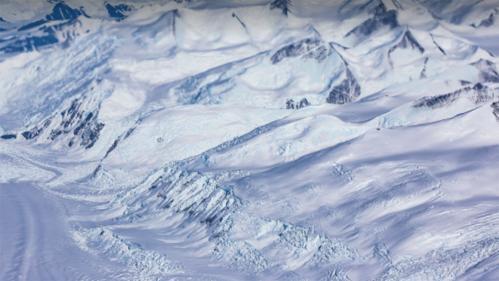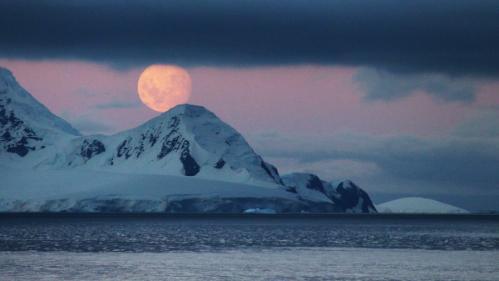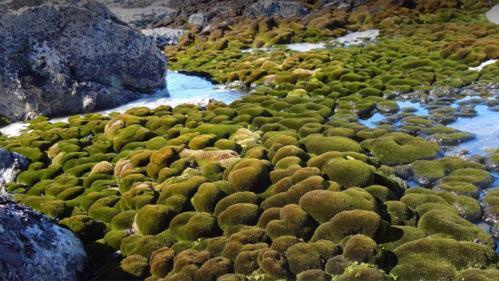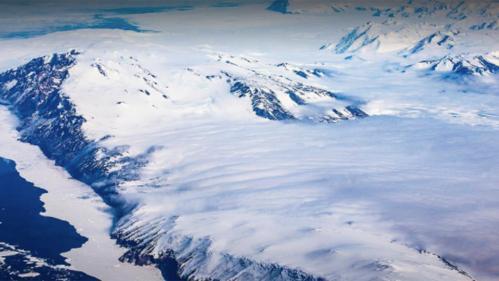Securing Antarctica’s Environmental Future (SAEF) aims to become the world’s leading research program delivering interdisciplinary science to forecast environmental change across the Antarctic region, to deploy effective environmental stewardship strategies in the face of this change, and to secure Antarctica as a natural reserve devoted to peace and science.
Securing Antarctica’s Environmental Future (SAEF)
SAEF exemplifies the leadership in science and environmental stewardship that lies at the heart of securing the environmental future of Antarctica, the Southern Ocean and the sub-Antarctic Islands. The Program’s outcomes include:
- Advances in climate, biodiversity and environmental science;
- Innovative ways to forecast, mitigate, and manage environmental change;
- New data-science tools to analyse, interpret and visualise Antarctic data;
- Unparalleled capabilities for exploring decision-making to secure the region’s environmental future;
- A new collaborative Antarctic science workforce with skills and experience in interdisciplinarity, and access to the new technologies that SAEF will deliver.
Research themes
UOW contributes to all the three themes of SAEF. Integration of these outcomes, from three key themes, will strengthen Australia’s leadership in Antarctic science, policy and governance at a time of rapid environmental and geopolitical change.
Theme 1: Climate processes and change
SAEF integrates knowledge from ice sheet reconstructions, satellite observations, meteorological field measurements, and high-resolution climate proxies from Antarctica, the Southern Ocean and the sub-Antarctic islands to understand recent variability and change in the region’s weather, climate and ice sheets. This delivers new insights into tropical to polar interactions, enhance understanding and forecasting of Antarctic precipitation and circulation patterns, and improve downscaling and ice sheet projections.
Theme 2: Biodiversity status and trends
Using downscaled climate and environmental information, novel biodiversity data, and integrated biological and geochemical proxies, SAEF produces transformative insights about the structure, function and drivers of Antarctic, Southern Ocean and sub-Antarctic biodiversity. New approaches will be developed to anticipate community spatiotemporal trajectories in response to physical change, including uncertainty quantification and sensitivity assessments for multiple species. Their outcomes will be combined with innovative remote-sensing techniques, ecological genomics, advanced statistical modelling approaches, and automatic image analyses to offer cost-effective tools for assessing trends in Antarctic biodiversity. They will be used to inform spatial planning for conservation and will provide a scientific basis for leading environmental stewardship.
Theme 3: Supporting environmental stewardship
In collaboration with key stakeholders, SAEF is developing bespoke decision-support tools to identify conservation priorities and strategies in the face of alternative environmental and political futures. To ensure that stewardship focuses on the most important environmental and biodiversity features, SAEF will develop a data-to-decision framework that explicitly and visually connects new biodiversity and human activity data streams, and modelling outcomes, with the key questions that managers and policymakers need to answer. New methods will offer insights into the evolving geopolitical relationships that affect the implementation and success of policy actions both in the region and globally, offering options to secure a sustainable global future.
Partners
The UOW team contributes, across a diverse field of expertise, with 30 collaborating partners to address Antarctica’s challenges. It will demonstrate Australia’s leadership in Antarctic Science and strengthen our relationships with Antarctic Treaty nations.
SAEF brings together researchers from UOW, Monash University, Queensland University of Technology, University of New South Wales, James Cook University, University of Adelaide, ANSTO, BOM, Geoscience Australia, Western Australian Museum, and South Australian Museum.
UOW researchers play a leading role in this Australian Research Council (ARC) Special Research Initiative in Excellence in Antarctic Science project.
UOW’s Distinguished Professor Sharon Robinson is Deputy-Director (Science Implementation) and climate scientist Professor Helen McGregor co-leads the climate theme. Statisticians Distinguished Professor Noel Cressie and Dr Andrew Zammit-Mangion contribute vital climate modelling, allowing SAEF to statistically downscale from climate models to smaller, more biologically appropriate scales.
Senior Professor Pascal Perez and Dr Johan Barthelemy use smart sensing technologies to remotely monitor Antarctic ecosystems. Distinguished Professor Stuart Kaye is SAEF's expert on environmental law and Antarctic policy.
Chief Investigators
Distinguished Professor Sharon Robinson (website)
Deputy-Director Science Implementation, UOW Node Lead
Professor Helen McGregor
Theme 1 Leadership Mentee
Distinguished Professor Noel Cressie
Chief Investigator Spatio-temporal Statistics
Distinguished Professor Stuart Kaye
Chief Investigator International Environmental Law
Senior Professor Pascal Perez
Chief Investigator Agent based Modelling
Andrew Zammit-Mangion (Senior Lecturer, ARC DECRA Fellow)
Chief Investigator Statistical Climate Modelling
Johan Barthélemy (Lecturer)
Chief Investigator Smart Sensing
Krystyna Saunders (Honorary Fellow)
Australian Nuclear Science and Technology Organisation/ANSTO Node Lead
Quan Hua (Honorary Fellow)
Australian Nuclear Science and Technology Organisation/Partner Investigator Climate
Research Associates
Dr Melinda Waterman
Postdoctoral Fellow
Students
Bao Vu (PhD)
Hao Yin (PhD)
Isabella Todd (BConsBio Hons)
Rachel O’Shannessy (BConsBio Hons)
Yifan Wu (PhD)
Professional Staff
Dr Diana King
Deputy Program Manager
Liz Ragen
Executive Assistant
Georgia Watson
Research Officer
Contact us
For general information please email saef-admin@uow.edu.au
/filters:format(jpg)/prod01/channel_3/assets/contributed/research-and-innovation-division/global-challenges/Eco-antarctica-16X9.jpg)







